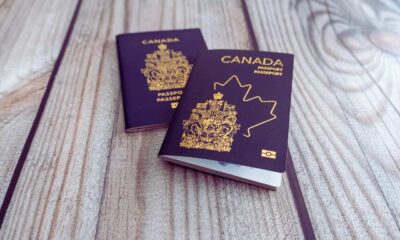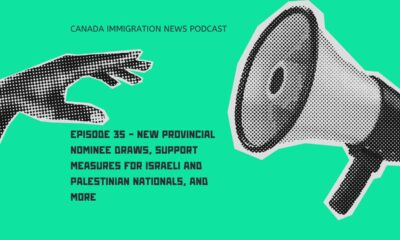Immigration Announcement
British Columbia Starts Issuing Provincial Attestation Letters (PALs) for International Students

In the latest British Columbia immigration update, the B.C. government has initiated the issuance of Provincial Attestation Letters (PALs) directly to eligible postsecondary institutions. This crucial development allows new international student applicants to include PALs when applying for a study permit to study in Canada.
Effective from March 4, 2024, this Provincial Attestation Letters issuance process aligns with the recent announcement by Immigration, Refugees, and Citizenship Canada (IRCC). According to the IRCC directive on January 22, 2024, new study permit applicants are required to submit this letter alongside their application, with exceptions outlined.
Excitingly, reports indicate that Alberta has also joined this initiative by issuing PALs to international students. The unique aspect of this mechanism is that educational institutions are taking the lead in obtaining PALs on behalf of international students.
For detailed information on Provincial Attestation Letters in Canada, prospective international students planning to study in British Columbia are encouraged to contact their respective institutions. The Provincial Attestation Letter serves as a verification document sent from the province to the institution, and subsequently forwarded to the overseas applicant. This letter is crucial evidence that the application adheres to the federal government’s maximum limit.
However, it’s essential to note that the recent cap on international students imposed by the Canadian government has limited the number of PALs that a province can issue.
Maximize Your IELTS Score:
Start your English journey: Learn English with British Council teachers — Up to 10% off
English Online Self-Study course: Learn English at your own pace with bite-sized exercises — Up to 10% off
Prepare for IELTS with the experts: Get the score you need with the co-creator of the IELTS test- Up to 15% off
PAL Allocation for B.C. in 2024
The allocation for British Columbia in 2024 accommodates 83,000 undergraduate study permit applicants, representing a shift from the 97,000 applications in 2023. Anticipating approximately 50,000 granted study permit applications in 2024, the federal government adjusts projections based on recent acceptance rates.
Understanding the nuanced exceptions is crucial for prospective applicants. Most post-secondary study permit applications, excluding specific categories mentioned in the exception list, require a PAL. Notably, primary and secondary school students, master’s or doctoral degree students, and those with valid study permits or in-Canada work permits fall under the exception list.
Furthermore, applicants whose submissions were received before 8:30 a.m. (Eastern time) on January 22, 2024, are exempt from the PAL requirement. Excitingly, certain 1-year Master’s programs in Canada offer 3-year post-graduation work permits without the need for a PAL.
For added convenience, B.C. has streamlined the PAL application process. Educational institutions take charge of obtaining the letters for applicants along with their offer letters, ensuring a smoother experience for study permit applicants.
Key Developments in B.C.’s International Student Program
Beyond PALs, British Columbia has implemented measures to address the growth of its international student program. The province foresees a significant impact on private institutions due to the imposed cap. Measures include a pause on approvals for new post-secondary institutions enrolling international students until February 2026.
Moreover, B.C. aims to enhance the quality of private degree programs, emphasizing higher standards for approval, including rigorous assessments of degree quality, labor market need, and available resources and student support. The province has also introduced minimum language requirements for students at private institutions.
PTE Core Test Update in British Columbia
Despite the recent inclusion of the Pearson Test of English (PTE) Core in IRCC’s list of approved language proficiency tests, the British Columbia Provincial Nominee Program (BC PNP) currently does not accept it. The BC PNP acknowledges the eligibility of PTE Core for various Canada work and visa applications but maintains its current list of accepted tests, including IELTS, CELPIP, TEF, and TCF.
The introduction of PTE Core aligns with Canada’s economic migration needs, focusing on language proficiency requirements set by IRCC. This new addition caters to vocational test-takers and is designed to assess key English language skills relevant to real-life, non-academic contexts.
Created in response to Canada’s evolving migration landscape, PTE Core is expected to be accepted by the BC PNP in the fall of 2024, offering an additional option for English proficiency assessment.
These recent developments in British Columbia immigration signal a dynamic stage for international students. The streamlined PALs issuance process and upcoming acceptance of PTE Core present exciting opportunities and choices for prospective applicants. Staying informed and connected with respective institutions remains crucial for a successful immigration journey to Canada.























